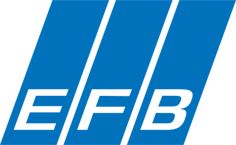MILL-FSW: Support for implementation of FSW on milling machines by use of an empirical approach
Friction stir welding (FSW), invented in 1991 at TWI, is one of the latest major welding innovations and very interesting for joining aluminum. Research activities and various developments by lead users such as Airbus have led to a capable process. However, until now mainly 2 aspects have been hindering its wider implementation in the industry.
The restrictive TWI patent obligating interested companies to buy an expensive license (patent fallen in the public domain since 2015, and the high investment of the FSW machines designed for that particular purpose. However, the configuration and features of those specific machines are very comparable to the ones present on current milling machines that can be found in many companies.
The empirical methodology proposed in this project will assure the transfer of nominal FSW processing parameters developed in optimal conditions to a parameter window that can be implemented on any milling machine. This goal will be accomplished by (a) choosing the milling machine whereon the process will be implemented, (b) characterizing only its FSW process relevant static, dynamic and thermal features, (c) robustifying the processing conditions and (d) using the measurement data to convert the nominal parameter window into a capable FSW activity on the milling machine.
The same strategy has been used in the past for other technologies. The threshold for the introduction of high speed milling (HSM) in the 1990' was also lowered by using standard CNC machines, instead of using expensive and highly dynamic new machines, only modifying them by adding a high speed spindle. This "intermediate but cost effective solution" helped the access to and wider implementation of the HSM technology.
Implementing the FSW process on milling machines should enable small and medium-sized companies to increase the machine efficiency through diversification. FSW can also be considered an important technology for "greener" manufacturing because the process does not emit any harmful waste or radiation, it is also energy efficient and supports lightweight aluminum or hybrid design for transportation means etc.
The project consortium is composed of 3 research partners (CEWAC, ISF and WZL) and a relevant number of companies from various industries (sheet metal working, aluminum machining, machine building etc.). CEWAC and ISF have a lot of expertise in the field of materials and welding in general, and FSW in particular.
In the field of FSW both partners are complementary because they work on different TRL's so that the research and industrial applications are of a different nature, they also have complementary (auxiliary) equipment and different industrial stakeholders. WZL is renowned for its knowledge of machine building and yearlong tradition in research on current and future machine technologies.
Results

